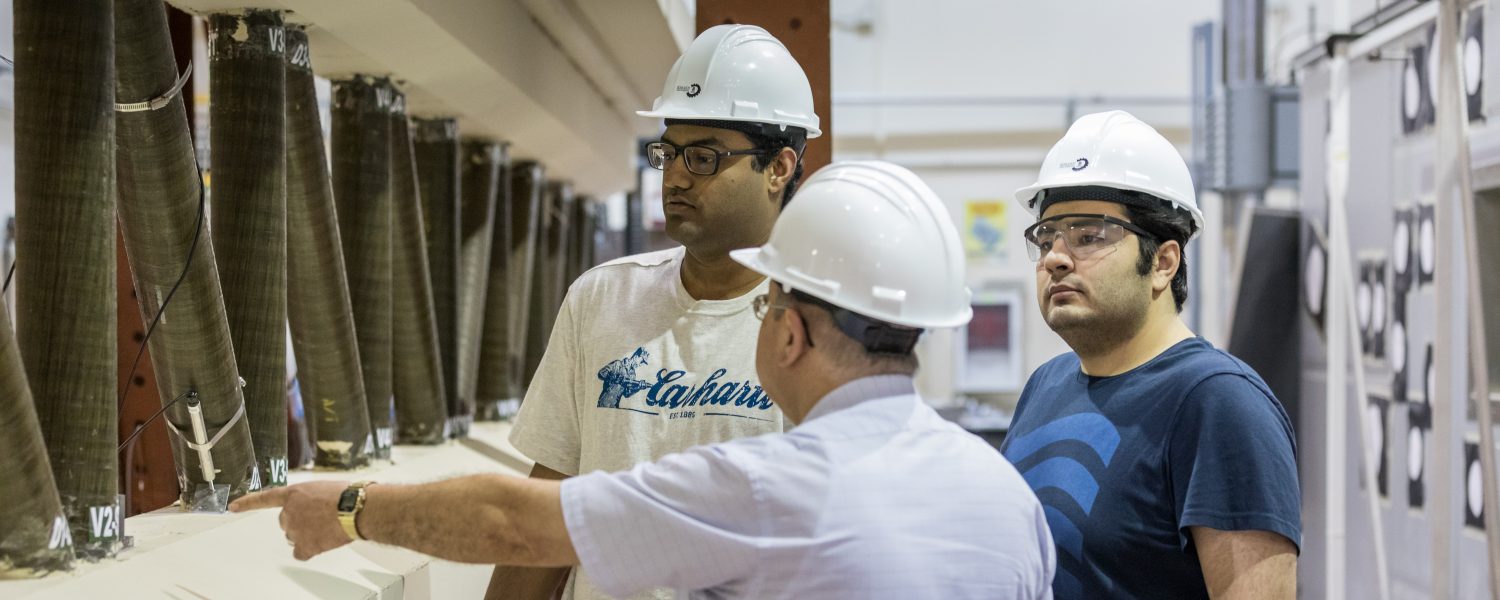As I was saying, I have founded my teaching philosophy on 5 principles:
Principle 1: Learning is gradual and develops in combination with experience. Similar to a multi-level building, new level of knowledge is built upon previous ones through a new learning experience. I believe that students can easily understand why learning is worth doing once they realize the connections between courses and their applications in the practice of civil engineering. Therefore, I attempt to connect concepts taught in my classes with that from previous learning experiences of students. I also discuss the industrial applications of the concepts through showcasing several engineering case studies.
Principle 2: Learning is a collaborative effort and occurs through participation in a common dialogue. Everyone in the classroom is part of a team and can add value to the learning experience. I believe that the structure bridging the gap between my students and I has to be two-way and founded on mutual respect and understanding. Therefore, I create back-and-forth dialogues in my classes and encourage students to participate in a respectful manner. I also ensure that the students feel comfortable participating in the dialogues and asking questions when concepts are not clear. Through this approach, I can inspire their curiosity for the topic and keep them motivated throughout the semester.
Principle 3: The learning process is sustainable only if it is conducted in a simple and flexible way. I believe that even the most complicated concepts can be taught in a simple way, if the teacher knows the concepts well enough. In fact, the more complicated and harder a concept is, the more flexible and simpler the method of teaching should be. As the most complex and strongest bridge truss systems are fabricated through connecting several simple, flexible, and straight elements, any complicated concept can be taught in a simple, flexible and straight forward manner. Teaching should not be an obstacle in the learning process by adding to the complexity of the concepts. I believe in simplicity in life and I apply this belief in my teaching, too.
Principle 4: The learning experience can be enhanced by utilizing proper forms of assessment. I believe that formative assessment is essential to enhance students’ success in summative assessments, such as quizzes and exams. Therefore, my approach toward course assignments is mainly formative which enables the students to evaluate their own learning progress throughout the semester. In addition, in order to familiarize the students with my expectations and to have a fair summative assessment, I provide them with sample questions and help them determine their strengths and weaknesses through practicing the questions. This practice and feedback approach keeps the students engaged and motivated.
Principle 5: I can do more, I can do better! Teaching, like student learning, is a developmental process built upon practice and feedback. Although I am confident in my approach toward teaching, I believe that there is always room for improvement. Therefore, I proactively reflect upon my performance by asking students to provide me with confidential feedback regarding the positive and negative aspects of the course and my teaching approach. I also seek valuable feedback from my colleagues through a friendly talk over a coffee or a discussion in our departmental meetings.
Teaching is the most rewarding profession I could ever have. Teaching at the post-secondary level gives me the opportunity to witness some of the most inspiring moments in my students’ lives. I hope, and I do my best, to positively influence my students so that they can see by their own eyes what I see in the beauty of learning and the world we live in.
